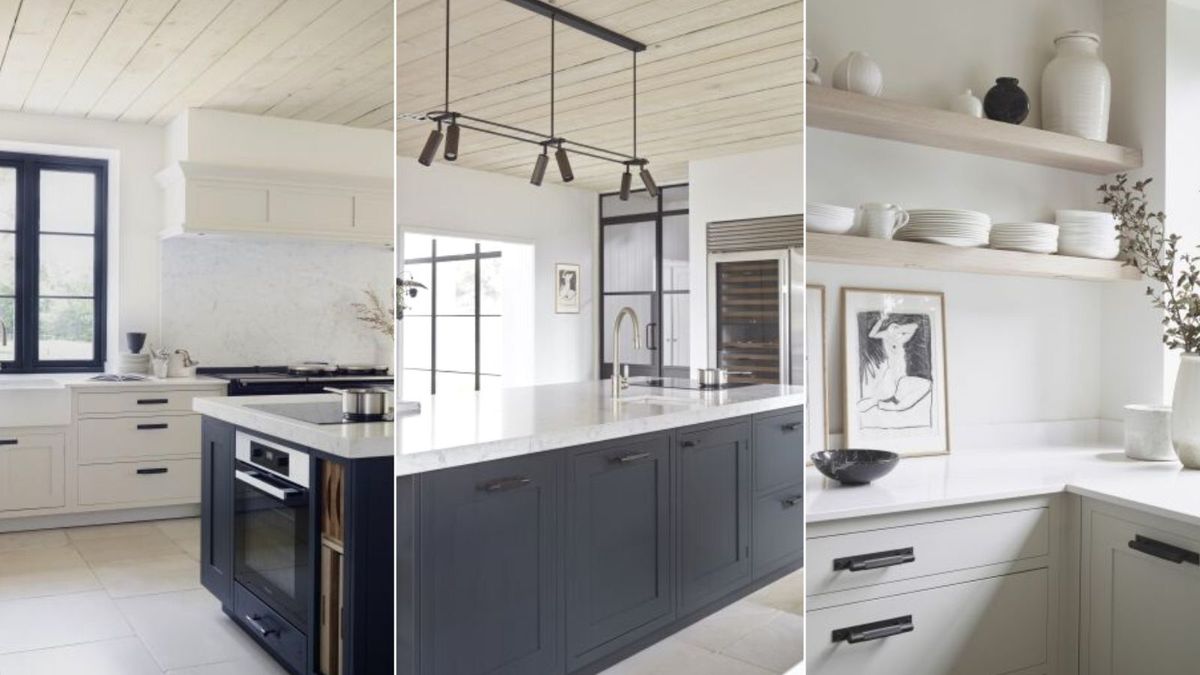“Honestly, the house wasn’t that great, but it had generous rooms with 14-foot ceilings and a few details that were worth preserving. Mary didn’t want to lose the original character entirely, so we tried to imagine what the house might have been if it had really exceptional period architecture,” Hefner recalls. Working within the original footprint, the architect completely recast the character of the structure by flattening its pitched roof, adding spruce modern eaves and corner windows, and cladding the formerly stucco exterior in white-painted reclaimed brick, the same material he used for outdoor screens, planters, and brise-soleils, as well as a few strategic walls of the interior. “It’s not a slavish re-creation of one particular style, but it has the right spirit and it feels familiar,” the architect says.
Inside the house, the purity of the crisp white exterior gives way to a delirious medley of color. The monumental living room, which measures 30 by 36 feet, is bathed in shades of pink and peach, the kitchen in celadon and forest green, the dining room in lavender, the primary bedroom in ice blue, and the extensively renovated poolhouse in bright yellow. The bedrooms of Kitchen’s three young daughters, as well as the bunk room they share for in-house sleepovers, are enveloped in different colorways of the same sprightly tulip-patterned fabric and wallpaper.
“Zoning the house by color allowed us to control the incredible variety of pieces and themes that Mary was drawn to, all these great things from far-flung periods and places. Once we established the rules, we were free to play within those boundaries,” Bush explains. As an example, he cites the merry mélange of furnishings and artworks collected in the extravagant living room: pedigreed Italian designs by Gio Ponti and Osvaldo Borsani; a restored seven-foot-wide Waterford crystal chandelier original to the house; William Haines barstools upholstered in Pepto-Bismol pink leather; a Walter Dorwin Teague piano for Steinway & Sons; fuddy-duddy vintage Louis XV–style bergères from Phyllis Morris; a 1970s brass banana-leaf sculpture; signature artworks by John Baldessari, Cindy Sherman, and Yayoi Kusama; and a massive Frank Stella Protractor painting articulated in, you guessed it, shades of pink and peach.
Bush peppered his various ensembles with bits of old-fashioned finery—Sherle Wagner marble toilets and gilt-finished fixtures, accent walls of smoky beveled mirror, Dorothy Draper cut velvets, bullion-fringed pool umbrellas—as well as humble midcentury materials such as Formica, linoleum, cork, and vinyl. “Call it anti-establishment taste. These are things that most people wouldn’t want or would tear out of an old house,” Kitchen says of the more outré decorative effects sure to set the teeth of persnickety aesthetes on edge. “I just love that it feels fun to me,” she concludes. “At the end of the day, if you don’t have a sense of humor, what’s the point?”


